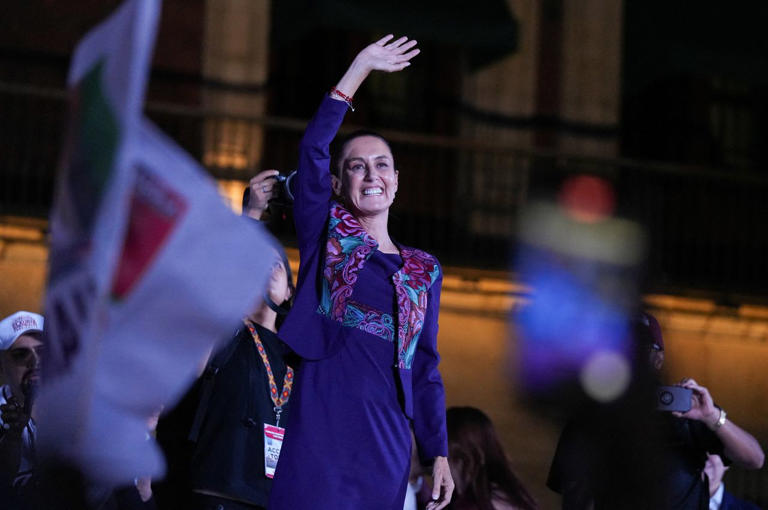Claudia Sheinbaum, the former mayor of Mexico City, has made history by becoming Mexico’s first female president.
She won the election decisively, capturing 58.6% of the vote with 73% of the ballots counted, according to official results from Mexico’s election agency. Sheinbaum’s victory is seen as a continuation of the leftist policies of outgoing President Andrés Manuel López Obrador.
Sheinbaum, representing the ruling Movement of National Regeneration (Morena), triumphed over her closest rival, Xóchitl Gálvez of a coalition of three opposition parties, who garnered 28.4% of the vote. Jorge Álvarez Máynez of the Citizen Movement received 10.6%.
Morena and its allies are poised to secure a two-thirds majority in Congress, enabling them to enact significant constitutional changes without opposition support. This majority, the largest since the early 1990s, could pave the way for comprehensive reforms proposed by López Obrador, including overhauling the energy sector, judiciary, and election agency.
The anticipated constitutional amendments could have far-reaching implications for Mexico’s democracy. Proposed changes include replacing the autonomous election agency, introducing popular votes for judges, eliminating certain industry regulators, and restructuring the electricity sector to favor the state utility. These measures have raised concerns about the erosion of checks and balances in the government.
In her victory speech, Sheinbaum addressed concerns about potential authoritarianism. “We are democrats and out of conviction would never be an authoritarian or repressive government,” she assured a cheering crowd. She also emphasized her commitment to private investment, fiscal discipline, and central bank independence.
The peso dropped 2.43% to 17.44 per dollar following the election results, reflecting investor uncertainty. Analysts suggest that López Obrador might push through key constitutional changes before leaving office, creating further unpredictability for investors.
Sheinbaum’s election marks a significant milestone for Mexico, becoming the first woman and the first Jewish person to lead the predominantly Catholic country. Her victory also highlights a shift in Mexican politics, with traditional parties like the PRI and PAN failing to make significant gains.
Sheinbaum has pledged to maintain friendly relations with the U.S., focusing on cooperation regarding migration and the fentanyl crisis. Her administration will also navigate the upcoming review of the U.S.-Mexico-Canada Agreement (USMCA), crucial for economic relations and trade.
Addressing Mexico’s security crisis remains a top priority for Sheinbaum, as criminal organizations continue to exert significant influence over drug and migrant smuggling routes. The election period has been marred by violence, with over 200 candidates and officials killed since September.
Sheinbaum promises to uphold López Obrador’s social welfare programs, which have been instrumental in alleviating poverty for many Mexicans. These include cash handouts for the elderly, scholarships for students, and reforestation grants.



